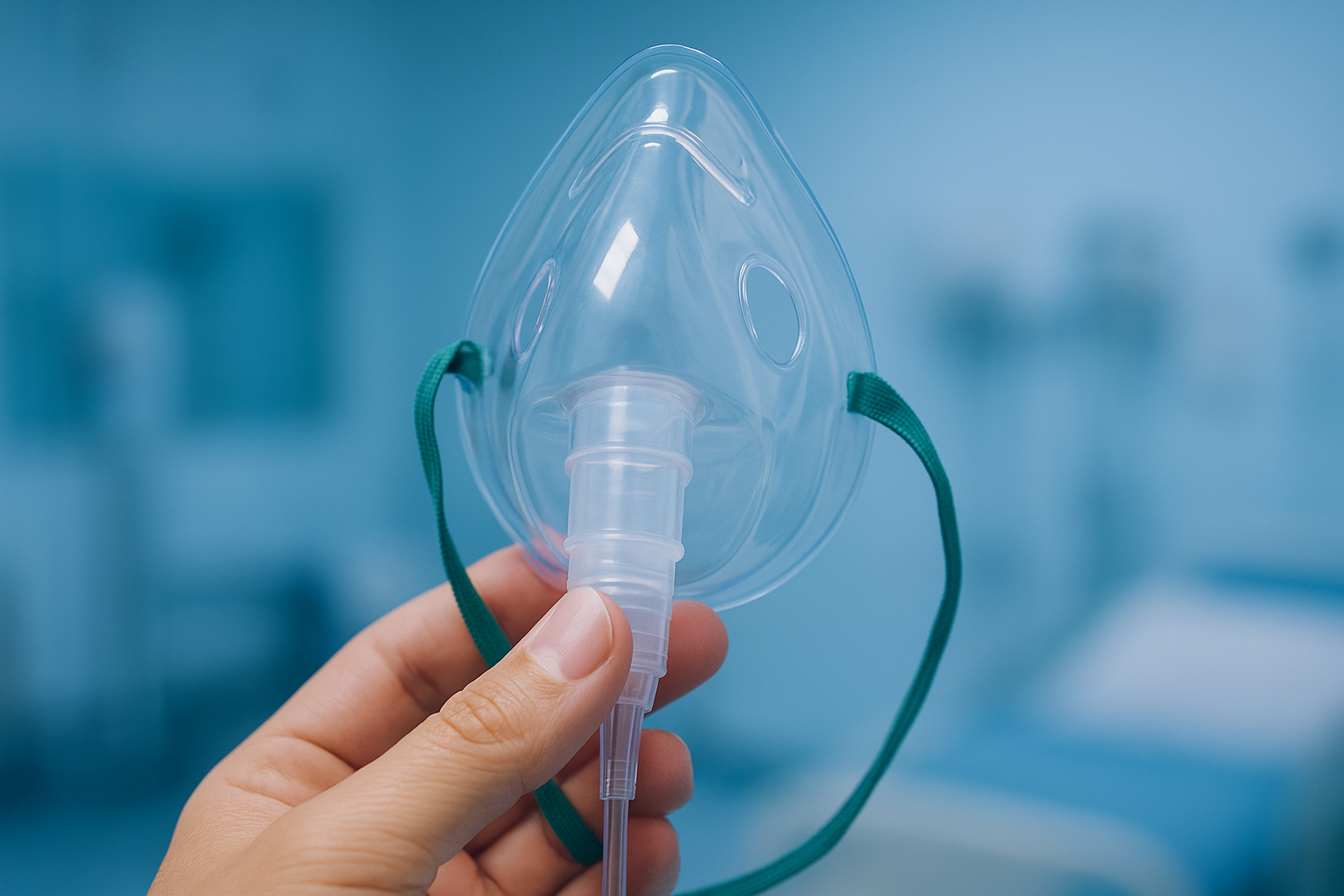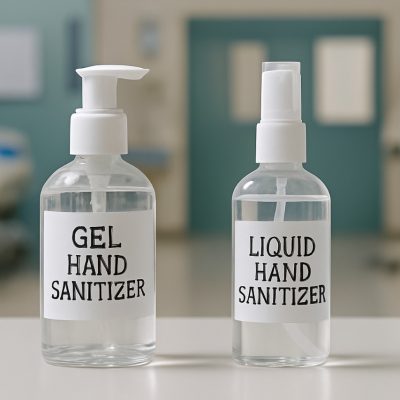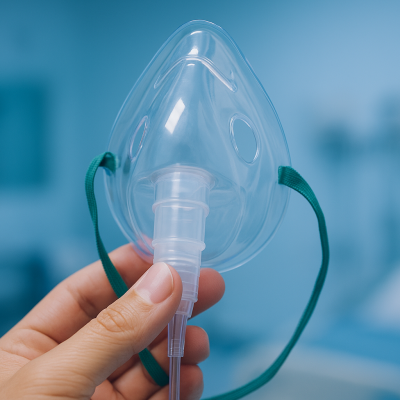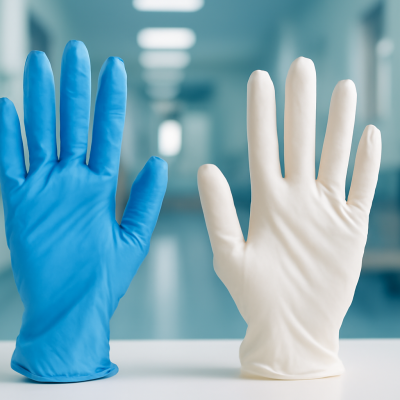Importance of Nurses’ Dress Codes
Nurses’ dress codes create the professional image of a nurse and encourage safe, high-quality care by determining what is and isn’t appropriate to wear to the workplace. Workplace rules vary for individuals, but all dress codes address the same things: professionalism, functionality, safety, and infection control.
Why Scrubs?
In the past, nurses wore formal white dresses and caps. Today, nurses wear scrubs because they are convenient, comfortable, and easy to clean. Scrubs are made from strong fabric that can withstand repeated washing, and they allow nurses to move freely through long shifts. Besides convenience, scrubs have become the universal symbol of healthcare. When someone wears scrubs, you immediately know they are a medical professional. Most hospitals provide scrubs not only for hygiene but also to help patients identify who the nurses are on the unit.
What Do Different Scrub Colors Mean?
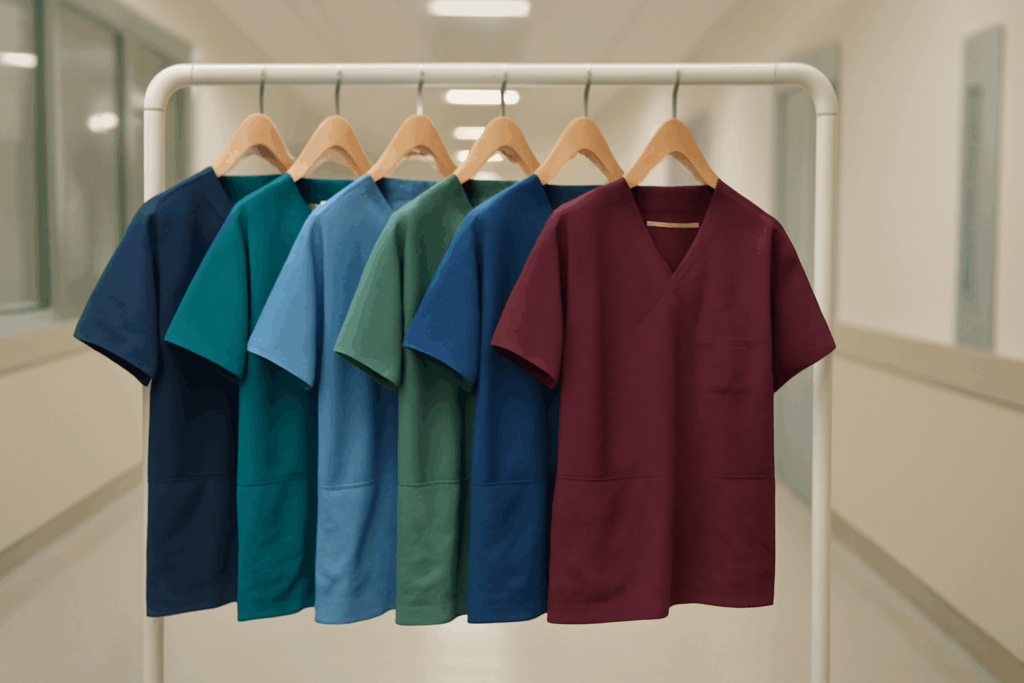
Most medical facilities use scrub colors to identify staff roles or departments. For example, one hospital might have RNs wear blue, and nursing assistants wear red. Color-coding allows everyone to easily identify who’s who. Certain specialties also use unique styles. Pediatric nurses may wear cartoon-print scrubs to make kids feel more at ease, while surgical teams often wear green scrubs provided by the hospital. Each workplace selects its colors to create a coordinated, professional look and make it easy to identify each team member’s role.
Nurse Dress Code Requirements
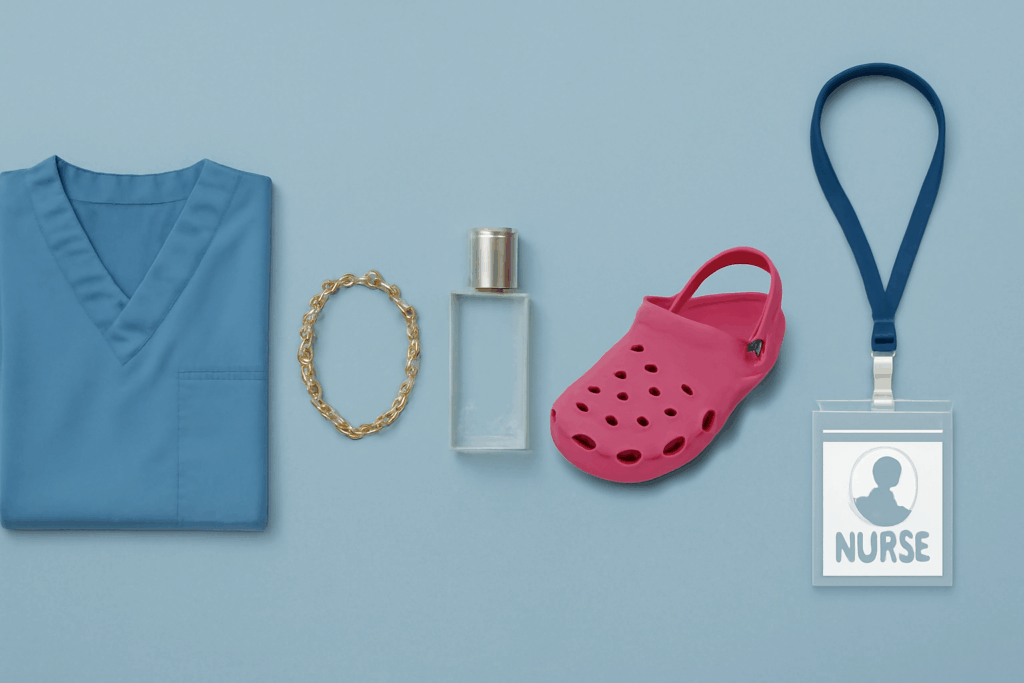
While scrubs are the foundation of a nurse’s uniform, dress codes go way beyond the uniform. Employers and nursing schools usually have detailed requirements to specify everything from the top of the head to the bottom of the toes. These policies can be restrictive, yet each has a reason – usually, to keep nurses and patients safe, and to uphold a professional image. Some common nurse dress code requirements include:
-
Proper, clean scrubs
Scrubs must be tidy, in good condition (no stains or tears), and properly fitted. Most employers specify the color or pattern of scrubs, and some provide an allowance or uniform package to ensure consistency. Undergarments must not be visible through scrubs; neutral-colored briefs and properly sized uniforms keep them discreet. Nurses typically wear socks or stockings that cover the ankle for a professional look.
-
Tidy and hygiene
Personal cleanliness is part of the dress code. Nurses are expected to shower and maintain good grooming. Strong body odor or smoke can be unpleasant for patients. Hair must be washed and tied back, with long hair secured behind the ears or on the shoulders to avoid interfering with patient care. Most hospitals prefer natural-colored hair for a business environment. Fingernails must be short and neatly trimmed; fake nails are typically not allowed, as they can harbor bacteria and increase infection rates. If nail polish is permitted, it should be a light color and free from chips. Makeup should be subtle and natural. Heavy makeup or artificial eyelashes are usually not acceptable in clinical settings. The goal is to maintain a tidy and professional appearance without distractions.
-
Limited jewelry
Nurses can wear jewelry, but less is best in the clinical setting. Policies usually allow plain stud earrings and maybe a minimalist wedding ring, but not much more. Dangle earrings or large hoops are off-limits because they could get caught on equipment or even be seized by an agitated patient. Similarly, most hospitals do not allow necklaces, bracelets, or facial piercings other than a tiny nose stud, if at all. Even rings are generally limited to one per hand (and some institutions have rules that state the rings should be stoneless). A watch is usually allowed – in fact, a watch with a second hand is handy for taking pulses – but nurses usually have a limit of one watch and it has to be waterproof and easy to clean.
-
No overpowering odors
In a hospital environment, a heavy perfume or cologne is equally undesirable as a stinky one. Nurses are typically asked not to apply perfumes, scented lotions, or aftershaves when attending to patients. The smell could be overwhelming or sickening to ill patients. Even extremely pungent shampoos and conditioners can bother people, so most facilities encourage fragrance-free or very mild personal care items. The goal is a germ-free, odorless atmosphere so patients are not disturbed by scents.
-
Footwear and ID
Nurses’ footwear is supportive and safety footwear. High heels or open-toe shoes are almost always prohibited. Instead, nurses wear closed-toe shoes with skid-resistant soles – athletic-type sneakers, clogs, or nursing shoes that can withstand long days of standing. The shoes need to be waterproof (to prevent spills) and should also be cleanable. Last, the nurses are required to always wear their ID badge prominently, usually pinned where patients can easily view it. The badge addresses the nurse by name and title, a security and trust issue.
These dress code standards may look daunting to recall, but before long they become second nature. Notably, some contemporary healthcare employers are easing up on some outdated restrictions to enable a degree of individual expression (some now permit visible non-offensive tattoos or clever scrub designs, for instance). However, the fundamental expectation is the same: dress professionally, safely, and with the patient’s care foremost.
Nurse Dress Code FAQs
What not to wear?
Anything that is a safety risk or is not business-like in appearance must be avoided by nurses. Open-toe shoes like flip-flops and sandals are usually not allowed in most hospitals, as feet need to be protected. Street clothes like jeans and shorts, and anything too revealing, can’t be worn by nurses if scrubs are what is being used as the uniform. Nurses also avoid things that can get caught or pull on a patient, such as long necklaces or large hoop earrings. Hospitals usually do not allow heavy perfumes or colognes, as people with strong smells can aggravate patients.
Can nurses wear jewelry to work?
Yes, but in limited amounts. One small pair of stud earrings and one plain ring (a wedding ring, for instance) is probably fine. Any dangly or excessive thing – like a hoop earring, more than one ring, or bangles – is not fine because it could get caught on something or be stolen by a patient.
Can nurses wear makeup?
Nurses can wear makeup provided it is professional-looking and natural. Faint makeup – such as foundation, mascara, and a subtle lip color – is standard. Heavy or dramatic makeup (i.e., glitter eyeshadow or bright lipstick) is discouraged in most workplaces since it may be distracting or appear unprofessional.
Can nurses wear perfume or cologne?
All things considered, it is best that nurses do not wear perfume or cologne to the workplace. Most hospitals are scent-free because something that smells good to you can make a patient sick or cause an allergy. Nurses are in such close contact with patients, so perfumes are best avoided altogether.
Are nurses allowed to have bangs in the hospital?
Yes, nurses are fine having bangs as long as their hair is well trimmed and in hand. If you do have bangs, keep them trimmed or pushed back so they won’t be in your face or on patients while you’re working. The main rule is that hair cannot be a distraction from patient care or get in the way of seeing – if your bangs are clean and out of the way, all is fine.



